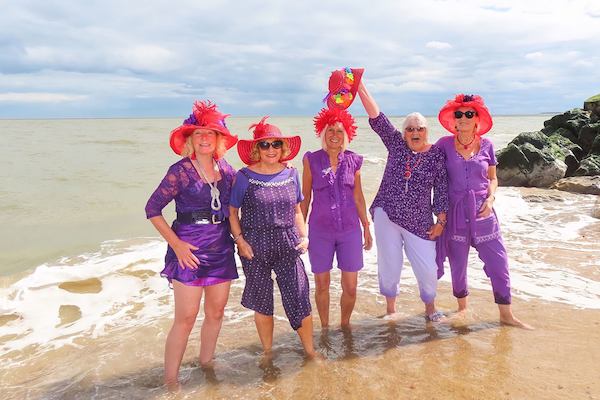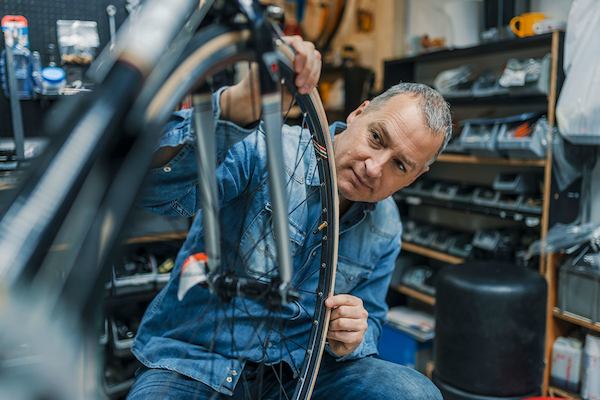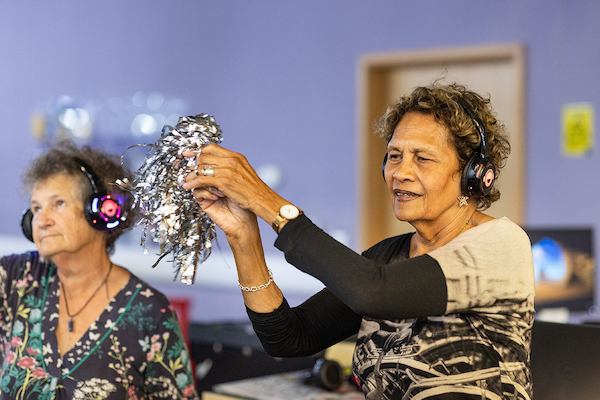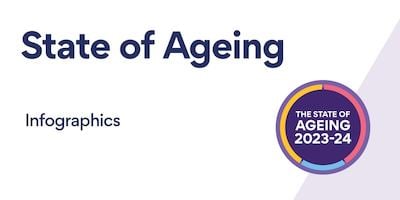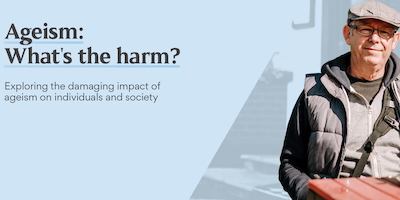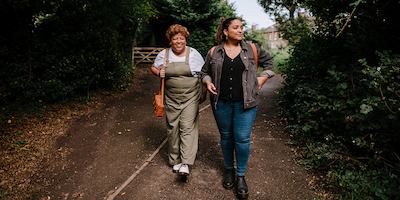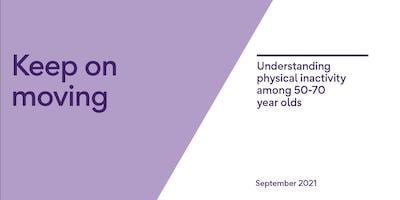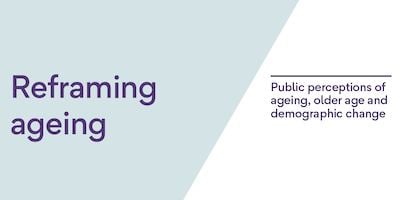More than two-thirds of the public think there’s no age limit to having fun at Glastonbury
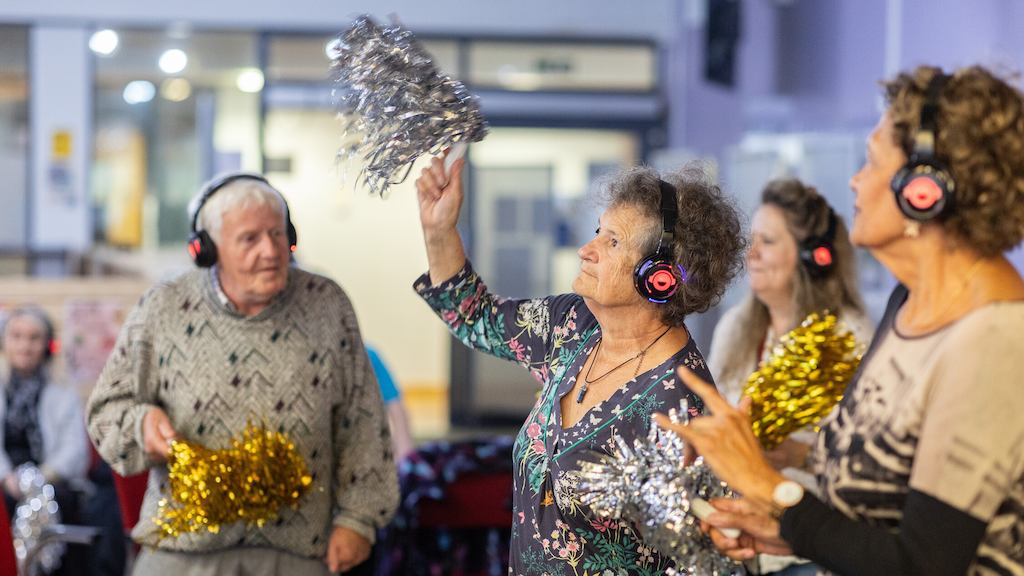
Around one in four members of the public (23%) think Glastonbury would be better if it had fewer people aged 50 and above attending, a new survey from anti-ageism campaign Age Without Limits reveals.
While more than two in three people (69%) said that no age is too old to go to the world-renowned festival in Somerset, a significant proportion - 23% - think that it would be better if fewer people aged 50 and above attended.
The figure rises higher among younger age groups with more than two in five (42%) 25-34-year-olds and 37% of 18-24-year-olds saying Glastonbury would be better with fewer older attendees while surprisingly more than one in ten people in their 40s and 50s also agree (17% of 45-54-year-olds and 13% of 55-64-year-olds).
The survey is part of the latest stage of the Age Without Limits campaign which is emphasising how unremarkable it should be when older people still pursue their passions and interests as they have always done or take up new interests at any age.
The campaign is calling on the country to notice and challenge the restrictive and negative stereotypes of older age that can cause people to feel judged for doing the things they've always done and even lead them to no longer pursue them.
When asked at what age is someone too old to go to Glastonbury, more than two in three people (69%) gave the answer of no age is too old to go to the world-renowned festival in Somerset.
But one in five people (19%) gave an age of 60 or below as the age of people not too old to attend while 14% of people gave an age of 50 or below.
The new survey also reveals what the nation thinks is acceptable for a 60-year-old to be doing if they are attending Glastonbury this weekend including:
- More than one in five (21%) think a 60-year-old would be too old to wear denim shorts
- Around two in five (39%) people think a 60-year-old would be too old to crowd surf
- More than one in three people think a 60-year-old would be too old to jump around in a mosh pit (36%) or slide in the mud (34%)
- Around one in ten people think a 60-year-old would be too old to stand right at the front for their favourite band (13%) or sing along loudly to the latest chart topper (10%).
Dr Carole Easton OBE, Chief Executive at the Centre for Ageing Better, said:
It is a shame that even when we think about a beloved event such as Glastonbury, which is all about inclusivity and a hugely diverse group of people brought together through a shared love of music, that there is still an element of ageism and intergenerational conflict. It really shows the extent to which we live in an ageist society.
“I take heart from the fact that more than two-thirds of people feel there is no age limit to participating in, enjoying and feeling included in an event like Glastonbury. This really embodies the spirit of Age Without Limits and the future that we envisage for a society without ageism. Age is just a number and should have no bearing on what we want to do as we grow older.
“Many supporters of the campaign tell us about the negative experiences they are subjected to just for pursuing their passions and interests. We have been told how they are subjected to stares and nasty remarks just for dancing at music festivals at their age, told to act their age, or greeted with shock and surprise that they are doing a certain activity in their 50s, 60s or beyond. Faced with such reactions, understandably many older people step back from pursuing their passions and interests, or at least from doing so publicly where they might be subjected to judgement and criticism.
“Getting older can have its challenges but being treated negatively because of your age should never be one of them. It doesn’t need to be this way. Together, we can change these negative attitudes towards ageing and older people. Everyone deserves to age without limits and we want everyone to help to make it a reality.”
The survey results are the latest in a body of evidence collected by the Age Without Limits campaign which highlights the often arbitrary limits and conformity of behaviours linked to age imposed upon older people by an ageist society.
Previous Age Without Limits polling indicates that significant proportions of UK society have rigid ideas about how people should behave over the age of 50 including:
- One in four people (24%) think it is embarrassing when people in their 50s and 60s go to concerts by the 21st Century’s biggest music stars such as Taylor Swift or Dua Lipa
- One in three members of the public (31%) think that people over 50 should always make sure that their outfits are “age-appropriate”.
- More than one in three people (34%) think that people over 50 should know their physical limits and slow down when it comes to certain activities such as exercise.
Other research carried out by the campaign has revealed how the public seriously underestimate the capacity and capability of older people and limit their own expectations of what their life could be like as they get older:
- One in two people (46%) don’t think they’ll be as effective in their job when they are old.
- Almost one in two people (42%) don’t think they’ll be as good at driving.
- More than a third (38%) of people expect not to have a good social life.
- More than a third (36%) don’t think they’ll be able to adapt to new technology.
Studies have also shown that the age that people are considered old averages out at just below 60.
Harriet Bailiss, Co-head of the Age Without Limits campaign, said:
It shouldn’t be surprising, or indeed divisive, for older people to attend music festivals like Glastonbury, just as it should be seen as unremarkable for people in their 50s, 60s and beyond to do Park Run, travel solo, or dance all night should they want to. They've been doing it for decades so why stop just because of their date of birth?
“Yes we can be inspired by older people. But seeing older people doing things they have always done as being 'remarkable' can limit us all and it can lead to people feeling judged and unwelcome. We want everyone to notice and challenge the negative and restrictive stereotypes of older age that can limit us and mean we feel judged for doing the things we've always done or even trying something for the first time.
“It seems strange to have to point out that we can still love music, movement, travel and other interests as much as we always have as we age or that it is not unusual for us to start doing something for the first time as we get older. But in the ageist society we live in, unfortunately that needs repeating. In a society without ageism, we would be free to be exactly ourselves at every age.”
The survey was carried out by Survation between 13th - 17th June 2025. Sample Size: 2,017. The survey was conducted via online interview of UK residents aged 18+.

